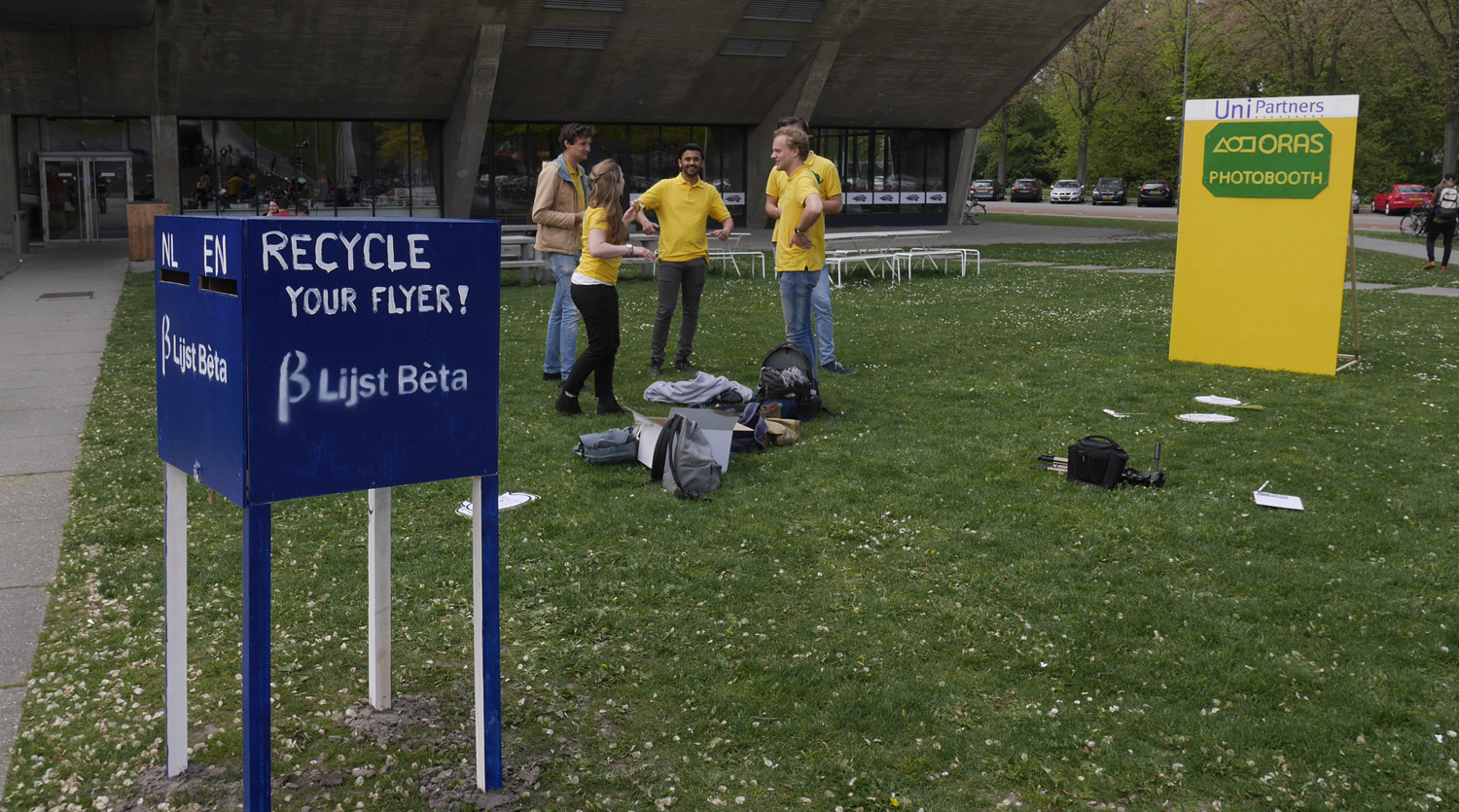All going well, student representatives will soon receive a suitable allowance. But not everyone is convinced that the students will really benefit.
Student representatives, here on campaign, ask for better compensation for their work. (Photo: Beeldarchief Delta)
Through the student representation bodies, students are involved in decisions around various issues such as education policy and the budget. But the allowance they receive fluctuates widely among institutions. This has been a topic of discussion for years.
The GroenLinks and PvdA political parties recently submitted a motion to ‘draw up national guidelines on allowances for the members of representative bodies with the student organisations and institutions’ umbrella organisations’. The majority in Parliament’s House of Representatives supported this proposal on 10 May 2022.
Responses
The Intercity Student Consultation (ISO) is ‘very happy’ with this decision and expects it to be a step in the right direction. “We are happy that it recommends guidelines as it is good that the discussion can also be held at each educational institution,” says Intercity Student Consultation Board Member Gijsbert van Elven. He believes that this will benefit the relationship between administrators and representatives.
However, Rien Wijnhoven, Chair of the Landelijk Overleg Universitaire Medezeggenschap (national platform of university participation bodies, LOVUM), is sceptical. “It is a bit of a random motion. Nice, but I do not believe it is that useful.” He believes that it lacks clear conditions for the institutions. “Some will use the guidelines to make good agreements, and others will not.”
The ISO hopes that it will strengthen student participation as the interest has been dwindling for years. “My enthusiasm for it will depend on its implementation,” warns Van Elven.
Too little
At TU Delft, the monthly board allowance for full-time Student Council members is EUR 181.50, writes Nanette van de Luitgaarden-Ninaber. She is the Secretary of the Central Student Council.
Julian van Dijk, Board Member of Lijst Bèta, believes that this is too little. “The Student Council has wanted a higher allowance for student council work for a long time. During the application interviews, we see that the financial investment needed during a council year is a real obstacle for some people.”
“It is good to see that the subject of council allowances is actively being discussed in the House of Representatives, but, to my mind, the pledge to draw up guidelines is tricky. At the moment there are already guidelines contained in the Sectorakkoord Wetenschappelijk Onderwijs 2018 (Sector Agreement on University Education 2018). These guidelines state that the work of council members must be at least eight hours a week. We believe that, even though we do our council work full-time, a technical assistant salary of eight hours should help bridge the financial obstacles in a council year. This would equate to EUR 488 gross a month.”
Lijst Bèta’s proposal is thus about EUR 300 higher than the amount that Student Council members now receive. Now it is wait and see what the national guidelines will be.
HOP, Josefine van Enk
Delta, Jos Wassink
Translation: Joanna Bouma
Do you have a question or comment about this article?
redactie@hogeronderwijspersbureau.nl


Comments are closed.